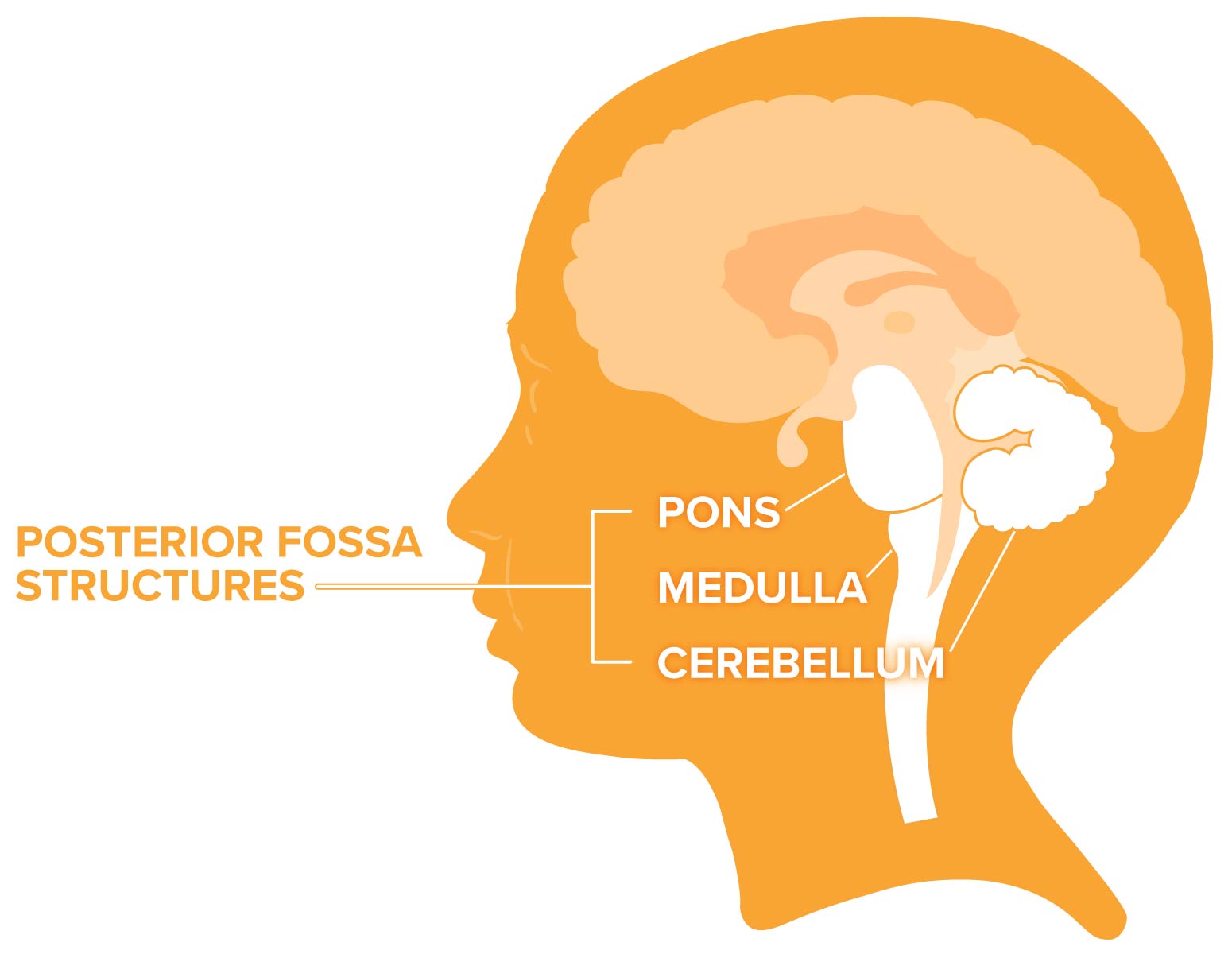What Is Posterior Fossa Syndrome?
Posterior fossa syndrome, also known as post-operative pediatric cerebellar mutism syndrome (pCMS), occurs in some patients with medulloblastoma after the brain tumor has been removed. It is a term used to describe a range of symptoms and behaviors.
The structures in the posterior fossa area of the brain control many functions in the human body. This includes balance, coordination, and motor skills. When this area of the brain is disrupted, such as by removing a tumor, it can lead to aftereffects in some patients.
While posterior fossa syndrome can occur in adults, it is most often seen in children.
Posterior fossa syndrome occurs in 25%-35% of children after surgery to remove a tumor in this area of the brain. It is not known why some children experience this syndrome and others do not.

What Is the Posterior Fossa and Where Is It Located?
The posterior fossa is a name for a location within the brain. It refers to the lower back portion of the brain. The cerebellum and brain stem are found in the posterior fossa.
Medulloblastoma occurs in the posterior fossa.
What Are Symptoms of Posterior Fossa Syndrome?
Posterior fossa syndrome signs and symptoms can include any or all of the following:
- Speech and language changes
- Being unable to speak, called mutism
- Difficulty with words, called dysarthria
- Motor issues
- Problems coordinating movements, called ataxia
- This can include issues with balance, motor skills, and/or trouble walking
- Behavioral issues
- Being irritable
- Extreme mood swings, not being able to regulate emotions well
Symptoms tend to appear anywhere from 1–6 days after surgery. They can range from mild to severe, and can last from 1 day up to 4 months.
How Is Posterior Fossa Syndrome Treated?
A variety of intensive interventions can be used to help treat the symptoms and behaviors that come with posterior fossa syndrome. Your care team might recommend any of the following for your child:
- Speech therapy
- Physical therapy
- Occupational therapy
- Working with a psychologist (“talk therapy”)
What Is the Prognosis for Patients with Posterior Fossa Syndrome?
Recovery of speech eventually occurs in most patients. Some will have a hard time expressing words for several months.
In many cases, the symptoms of posterior fossa syndrome lessen or go away completely with treatment. Some children may still have symptoms 12 months after diagnosis and will continue to experience symptoms long-term.
Children who have posterior fossa syndrome have a higher risk of long-term neurological and cognitive impairments. This means they may have difficulties with thinking and learning as they grow.